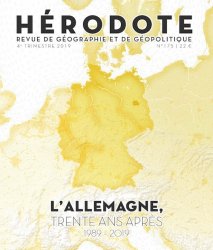Germany: The Power Out of Phase

Germany has enjoyed a decade of sustained economic growth, benefiting from a very low unemployment rate and considerable trade and budgetary surpluses. This phase is now coming to an end. Some even believe that the German economic model needs to be rethought.
Germany’s foreign policy is following the same path, which highlights the interdependence between political and economic power of the Federal Republic. During the first three mandates of Angela Merkel (and especially between 2013 and 2017), Germany occupied a key role in Europe, deepened its relations with Washington, Moscow and Beijing, while significantly expanding its presence (for the most part commercial but also cultural) in Asia and Africa at the same time. From this point of view 2017 marks a change. In the office since the end of 2016, Donald Trump is openly challenging Germany. German influence on Russia has become marginal if not non-existent, while within the EU, despite the election of a German executive to the presidency of the Commission, Berlin’s influence on major issues (Brexit, the reform of the Euro zone, the European defence project...) is declining. Germany’s foreign policy is at a turning point.
Hans Stark is Professor at Université Paris-Sorbonne and Secretary General of the Study Committee on Franco-German Relations (Cerfa), Ifri.
This article appeared in the Geography and Geopolitics Review Hérodote published regularly by La Découverte editions, broadcast by Cairn.info (pages 11 to 12) « L'Allemagne, 30 ans après - 1989 - 2019 ».






